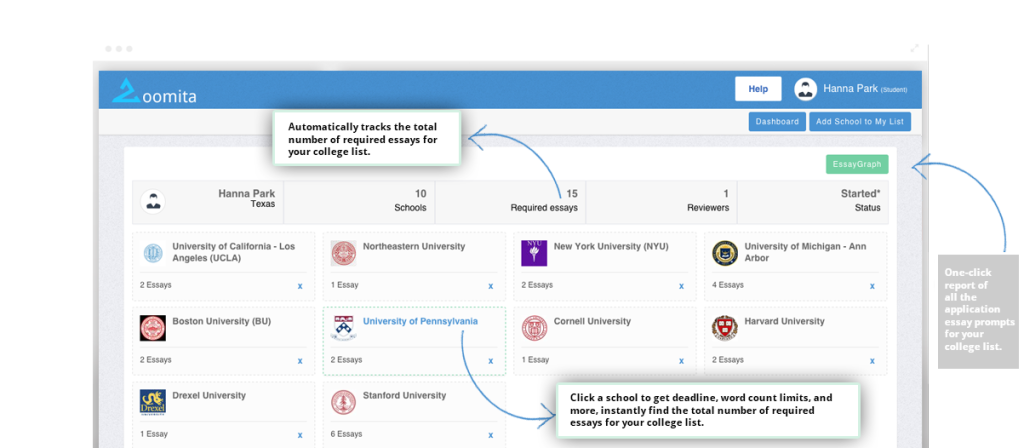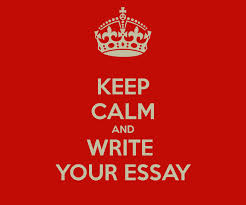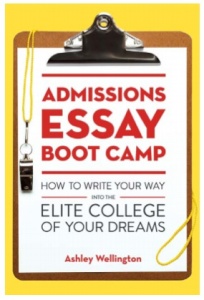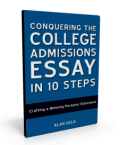 Over the past five years I have read and commented on hundreds of essays from students all over the country. As a result of that work, I have two categories of advice: general essay-writing tips (which we’ll discuss soon), and specific ways to make the Common App essay prompts work for you.
Over the past five years I have read and commented on hundreds of essays from students all over the country. As a result of that work, I have two categories of advice: general essay-writing tips (which we’ll discuss soon), and specific ways to make the Common App essay prompts work for you.
The big idea here is that the story you want to tell matters a lot more than the prompt you attach to it. Most stories are about more than one thing, so yours might be about identity and failure, or about contentment and coming of age. So write the story first, and then figure out how to pitch it to an admissions committee. Having said that, it’s still useful to understand the questions. So let’s look at them in detail:
1. Some students have a background or story that is so central to their identity that they believe their application would be incomplete without it. If this sounds like you, then please share your story.
There are several ways to read this question: Is your ethnic, racial, cultural, or linguistic background central to your identity? Do you have a specific story you can tell that illustrates that in an engaging way? Sweet. Try it and see how it goes.
But that’s not the only thing way to answer this question. It can also be about what it felt like when your family moved from Oklahoma to NYC, and how that move made you who you are today. It could be about the birth of your little sister the summer before your junior year, and how becoming one of her primary caregivers changed your perception of yourself.
2. Recount an incident or time when you experienced failure. How did it affect you, and what lessons did you learn?
One way to think about this question is that’s not really about the failure at all, but rather, about the response to failure. It’s an opportunity for you to tell the admissions officers how you respond to adversity. What’s nice about this question is that you don’t have to pretend that your failure was actually a success, or any of that job-interview nonsense. If you face-planted in epic style, write about that, as long as you then write about how you dug all the gravel out of your face and kept going.
You can also add to your understanding of this question by thinking broadly about what it means to fail at something. You could write about failing tenth grade chemistry. But really, it would be a lot more interesting to write about how you came to the realization that no matter how hard you worked, your feet would never allow you dance on pointe. One of my students wrote about how she came to accept that fact, but that in doing so, she also discovered not only how to dance for pleasure again, but to enjoy other activities, too.
3. Reflect on a time when you challenged a belief or idea. What prompted you to act? Would you make the same decision again?
Just like the question about failure, this question should be understood as broadly as possible. Don’t limit it to school. Do your parents believe that financial security is the only consideration in choosing a career, while you want to be an actor? Do your parents want you to follow your dreams, while you want something grounded and practical for yourself? Does your school worship athletic prowess, while you think social action is more important?
Stories about standing up to bullies or publishing an article in the school newspaper that the administration didn’t want you to are great examples, but bravery isn’t always loud and public; sometimes it’s quiet and private.
4. Describe a place or environment where you are perfectly content. What do you do or experience there, and why is it meaningful to you?
What’s your favorite TV show? (Quick – just pick one.) Now, think about what makes that show your favorite. Is everyone in it happy all the time, and good friends all the time, and nothing ever happens because there’s no drama? A lot of my students have said things like, “I feel really content while playing the piano because it lets me lose myself in the music,” or “I feel really content in my grandmother’s kitchen.”
But being content doesn’t really make for a good story. So for this essay, try to think about why you feel content somewhere. One of my students wrote about being content in the dance studio at her school, and the process that led her to feel that way. She hadn’t always felt content there. In fact, for a while she had felt intimidated there. The essay turned out to be about how she grew into herself, both as a dancer and as a leader.
5. Discuss an accomplishment or event, formal or informal, that marked your transition from childhood to adulthood within your culture, community, or family.
Just as the failure question isn’t really about failure, this one isn’t really about the accomplishment or event: it’s about how you fit into your community. So you can write about your bar or bat mitzvah, or your quinceañera, but you could also write about your first job, or the time you had to put your dog down, or what you learned from looking after your younger sibling.
Remember when I said that the story matters more than the prompt? That’s because all the prompts are really the same prompt, asking for the same story: “Tell us how you’ve grown and matured over time.”
__________________________
Today’s guest post is by Rachel Shulman of Shulman & Hill, LLC. Rachel is a passionate teacher, and her students often comment that this passion and excitement for her subject makes them more interested, sometimes in spite of themselves. She has helped students achieve their goals in all three AP History classes and both AP English classes, as well as on the Reading Comprehension and Writing sections of the ACT and SAT. Since the fall of 2010, she has edited over 300 college application essays, working both on her own and with independent educational consultants.
A graduate of Bryn Mawr College, where she majored in History, Rachel also holds an MA in History and an MS in Library and Information Science, both from the University of Illinois – Urbana Champaign.
Based in the Boston area, but with students all over the country, Shulman & Hill specializes in standardized test preparation, high school English, History, Math, Physics, Biology, and college application essays. We provide individualized learning plans tailored to the student’s unique learning style. Our goal is to leave our clients prepared for independent academic success.







